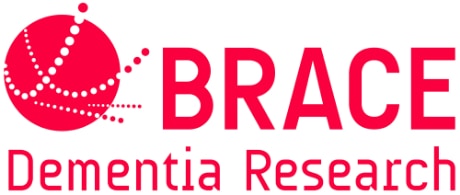Dr Xinzhong Li, Dr Stephen Pearson & Prof Emmanuel Ifeachor
Pilot Project: University of Plymouth, 2016
Breath tests to detect Alzheimer’s disease; a pilot study.
See glossary at bottom of page for definition of underlined words.
Summary
Current diagnostic tests for Alzheimer’s are either invasive or expensive. This project seeks to diagnose Alzheimer’s disease by analysis of volatile organic compounds (VOCs) in people’s breath. The VOC signals of people with Alzheimer’s disease will be compared to those of people without the disease to see if there is a noticeable difference. This test will make use of a state-of-the-art mass spectrometry technology to detect VOCs in real time. An early diagnostic test for Alzheimer’s disease would be a huge leap forward in dementia research and allow more effective treatment of dementia.
What do we already know?
Drugs targeting amyloid-β plaques and tau protein tangles, two hallmarks accumulated in the brain of Alzheimer’s disease sufferers, have been unsuccessful in clinical trials. It is now thought that soluble precursors of these deposits in the brain occur 15-20 years before symptoms develop. If we can target these smaller molecules – instead of the larger protein aggregates – then we stand a much better chance of combating the disease.
Existing diagnostic tools can assist AD diagnosis, but these can be invasive (e.g. cerebrospinal fluid analysis of proteins) or expensive (MRI/PET scanning). Volatile organic compounds (VOCs) are the end products of metabolic processes in the body that can be modulated by a variety of diseases, therefore breath testing (which links specific VOCs in exhaled breath to medical conditions), may offer a diagnostic opportunity for a variety of diseases. Indeed, trials around the UK are currently underway looking at diagnosing oesophageal, gastric and lung cancers, as well as Parkinson’s disease. Regarding dementia, one study recently found that VOC signals in AD differ from healthy participants.
What is this group trying to find out?
This project aims to determine whether VOCs in exhaled breath can act as biomarkers for non-invasive early diagnosis of Alzheimer’s disease.
How do they do this?
Alzheimer’s disease and control participants will breathe into a breath analyser (a state-of-the-art Field Asymmetric Ion Mobility Spectrometry (FAIMS) technology) which detects VOCs in real-time. The VOC profiles of Alzheimer’s disease and control participants will then be compared to see if there are any differences. In addition, the group will compile participants’ gender, age, education level, MMSE, and other medical variables together with the VOC profiles to create a comprehensive database.
Why is it important?
By combining the aforementioned database with machine learning technology, the team aims to discover novel biomarkers of Alzheimer’s disease, and use this to develop a cloud-based, non-invasive and cost-effective platform for early diagnosis and monitoring using breath testing. This would be a huge leap forward in dementia research and such early detection may enable more effective treatment.
Glossary
Invasive medical procedure – Any surgical or exploratory activity in which the body is pierced by a device or instrument.
Mass spectrometry – A chemical technique used to analyse the identity of compounds found in a sample based on the size to weight ratio of each molecule.
β-amyloid – Small proteins which aggregate to form amyloid plaques in Alzheimer’s disease. These plaques will eventually lead to the death of cells in the brain.
Tau – Proteins that stabilise a cell component known as microtubules. In Alzheimer’s and Parkinson’s disease these tau proteins are defective and no longer functional.
Clinical trials – Trial to evaluate the effectiveness and safety of medications or medical devices by monitoring their effects on people.
Metabolic process – A biochemical processes (in a cell or organism) that are necessary for life.
Biomarker – Biological molecule that can be detected and measured in parts of the body, such as the blood.
Machine learning – A field of study concerned with the design and development of algorithms and techniques that allow computers to learn.
Cloud-based (technology) – Computing services provided over the Internet (or "cloud").
Further information
Please click here for more information about the work of Dr Xinzhong Li.
Please click here for more information about the work of Dr Stephen Pearson.
Please click here for more information about the work of Prof Emmanuel Ifeachor.
Share this page
